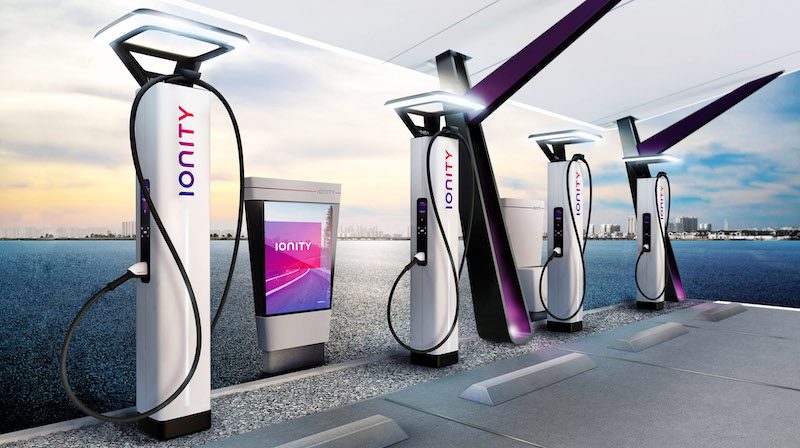As DC fast chargers roll out and network operators scramble to ‘make hay while the sun shines’ – i.e. before there is enough competition to keep prices at competitive levels – it is sobering to see what is currently happening in the UK regarding DC fast-charger kWh pricing.
A recent report from the UK’s What Car? organisation shows EV owners can pay a significant premium for the fastest DC chargers over home kWh pricing.
As seen in the table below, (all pricing converted to $A rates) a 10 – 80% charge for a 64kWh Hyundai Kona electric could in the UK cost almost $60 (Ionity) or $17.47 (Polar Plus) – both at the fastest charge rate for the Kona!
In comparison, on a $0.20 domestic off-peak electricity rate – that same charge would only cost $8.96.
(Editor’s note: see also our article on outrage in Norway on Ionity price increases)
| Network | Cost per kWh ($A equivalents at time of writing) |
10-80% charge for a 64kWh Kona |
| Ionity (350kW) | $1.33 | $59.58 |
| Polar Contactless (150kW) | $0.79 | $35.39 |
| Shell Recharge (50kW, 150kW) | $0.77 | $34.50 |
| Instavolt (50kW to 125kW) | $0.69 | $30.91 |
| Polar Instant (150kW) | $0.69 | $30.91 |
| Genie Point (43kW, 50kW) | $0.59 | $26.43^ |
| ESV EV Solutions (43kW, 50kW) | $0.49 | $21.95< |
| Charge Your Car*** (43kW, 50kW) | $0.49/min | $36.75* |
| Ubitricity (5.5kW AC) | $0.39 | $17.77> |
| Polar Plus (150kW) | $0.39 | $17.47 |
| Ecotricity domestic customers (AC) | $0.37 | $16.58 |
| Polar Plus (43kW, 50kW) | $0.30 | $13.44** |
| Source London Flexi (22kW) | $0.24 | $10.75*** |
| Comparison domestic tariff | $0.20 | $8.96 |
Notes to table:
^ includes $1.97 fee per charge;
< $7.88 monthly fee;
* at 50kW charge rate;
> $19.68 monthly fee, plus $0.30 per charge;
** $15.46 monthly fee;
*** $19.70 sign-up fee.
As What Car?’s editor, Steve Huntingford, commented: “Although there are still a lot of slow (3kW AC) public charging points that are free to use, you’ll have to pay if you want a quick energy fix. And this is where the costs can rack up if you don’t research the various networks in advance.”
Hopefully, here in Australia, we won’t see such a level of price gouging … provided suitable EV policy is developed and implemented in time.
Given Australia is well behind in EV uptake levels as compared to more EV developed nations, it is a salient warning for the need for governments to monitor overseas trends (as seen here) and develop proper EV policies well before such impediments to EV adoption occur.

Bryce Gaton is an expert on electric vehicles and contributor for The Driven and Renew Economy. He has been working in the EV sector since 2008 and is currently working as EV electrical safety trainer/supervisor for the University of Melbourne. He also provides support for the EV Transition to business, government and the public through his EV Transition consultancy EVchoice.

